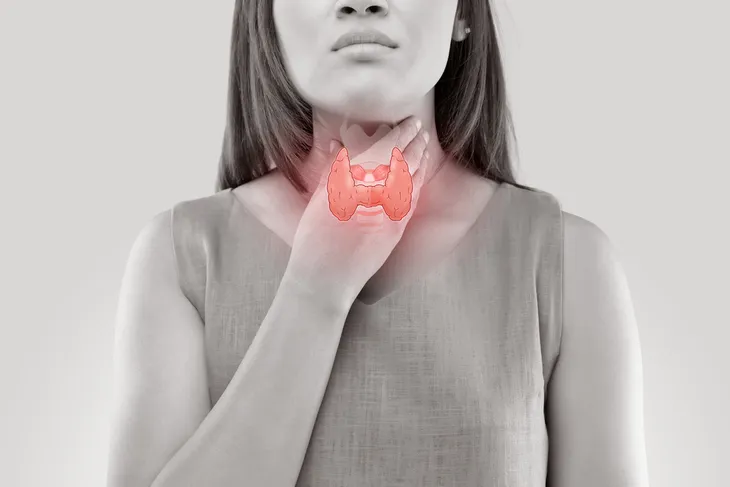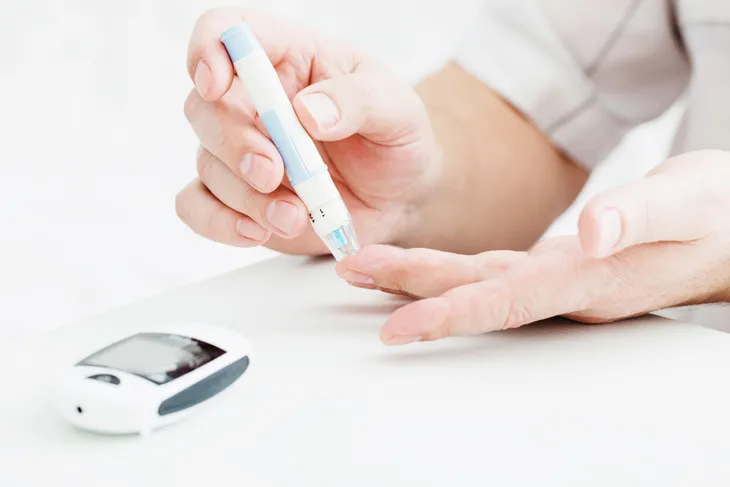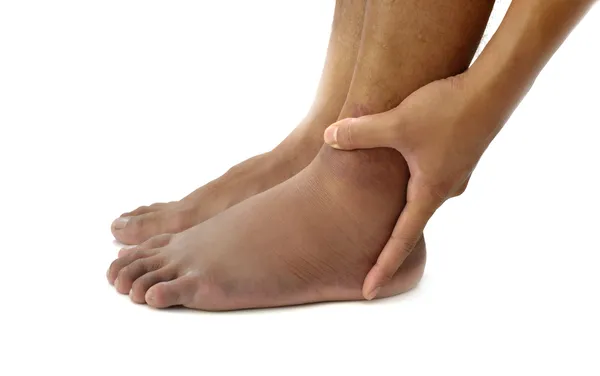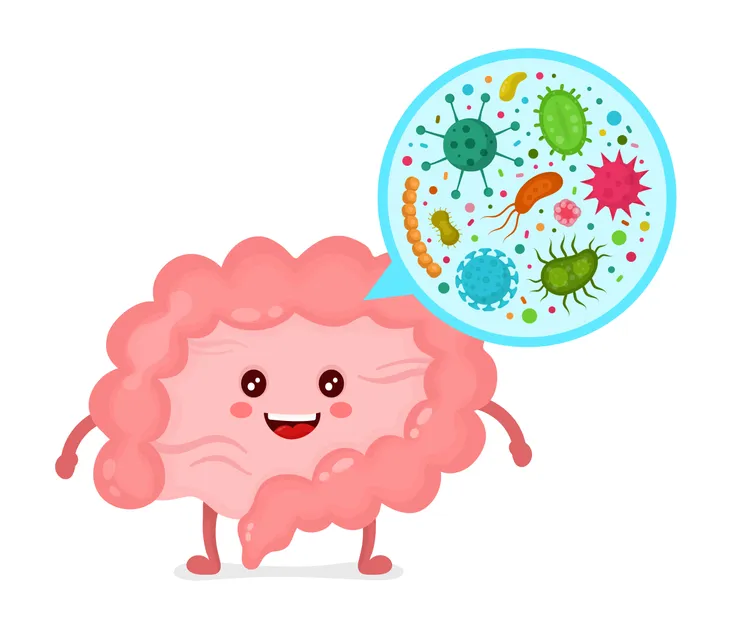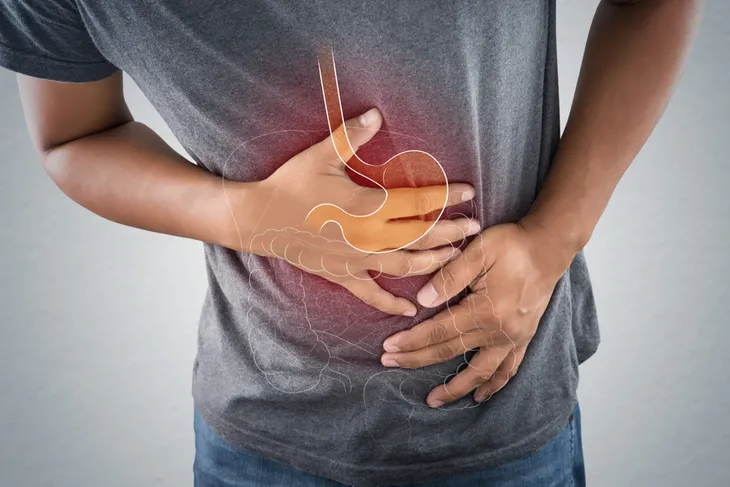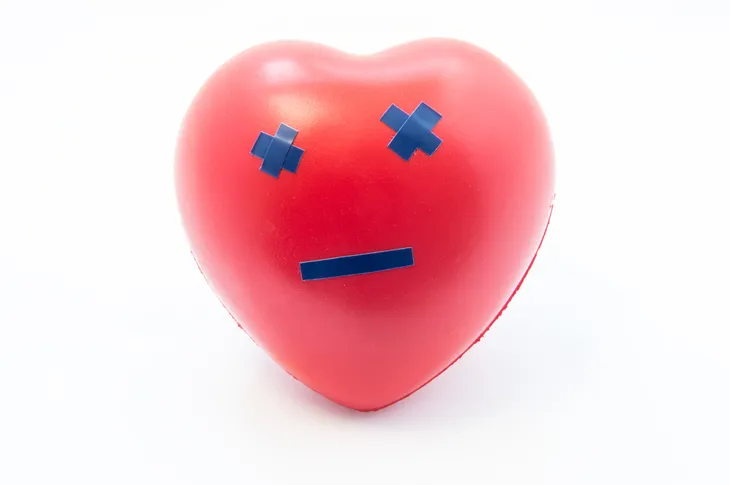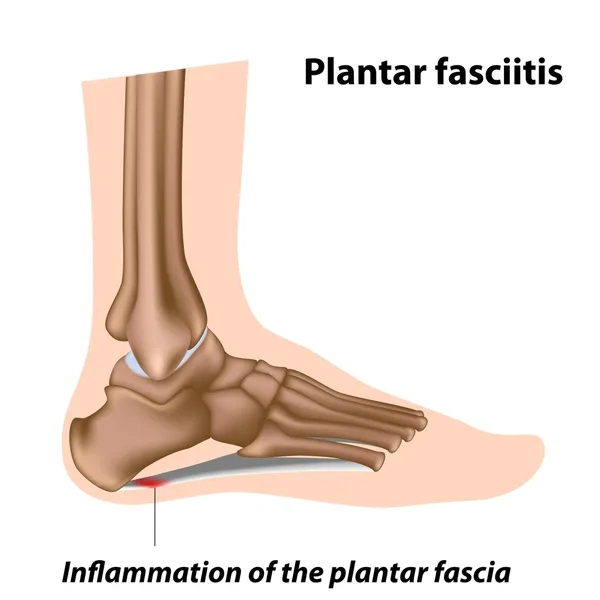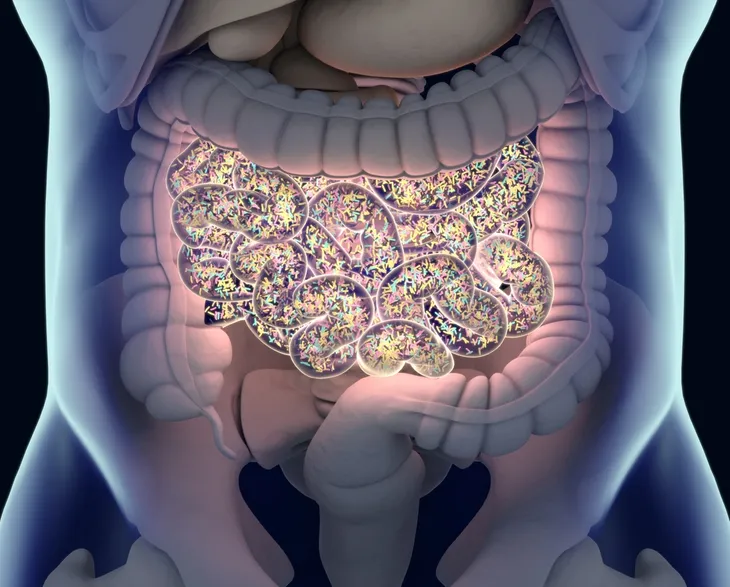Did you know that unexplained weight gain can indicate an underlying health issue?
Sometimes, despite maintaining a healthy caloric intake and getting regular exercise, an individual can experience weight gain due to any of these health-related reasons…
Hypothyroidism
The butterfly shaped gland in our neck is called our thyroid and it’s responsible for monitoring several of the body’s important functions like controlling how quickly we burn calories. SELF explains that it produces hormones like triiodothyronine and thyroxine which control the rate of our metabolism.
Hypothyroidism occurs when the thyroid becomes under-active or fatigues entirely (meaning it stops producing adequate thyroid hormone). As a result, your metabolism will slow down leading to an increased chance of weight gain. Problems with the thyroid are common and can be super frustrating because it causes symptoms that can be misconstrued for other problems. In addition to weight gain, hypothyroidism can cause “fatigue, difficulty tolerating being cold, joint and muscle pain, constipation, dry skin, thinning hair, decreased sweating, heavy or irregular periods, depression, and a slowed heart rate,” writes SELF.
Polycystic Ovary Syndrome
Polycystic ovary syndrome is a condition that is caused by whacky hormones. Women who suffer from an imbalance of estrogen and testosterone will develop this endocrine disorder which can lead to irregular periods, acne, facial hair, and weight gain.
“This disorder, which strikes one in 10 women of childbearing age, also disrupts the way the body uses the hormone responsible for converting carbohydrates into energy,” writes Health.com after talking to Michael Nusbaum, MD, bariatric surgeon and founder of Healthy Weight Loss Centers. If the body is resistant to regulating glucose in the blood then it puts the body at risk for storing sugars and starches as fat. There’s no cure for PCOS so the best way to treat it is by managing symptoms and medication.
Anti-Depressants
While anti-depressants might make you feel better, they can cause a whole slew of other side effects, including weight gain. Prevention talked to Robert J. Hedaya, MD, a clinical professor of psychiatry at Georgetown University Medical Center who warns that the weight gain from anti-depressants can be anywhere from 5 to 15-pounds to continued weight gain over the years.
Prevention also refers to a 2015 study published in the journal of General Hospital Psychiatry which looked at 362 patients who were all taking anti-depressants. The study found that over 55-percent suffered weight gain over a six to 36-month period.
Other Medications
We’ll be touching on a lot of them in this article, but Prevention points out that there are a lot of medications that lead to weight gain, including antidepressants, birth control, steroids, diabetes medication, etc. However, another aspect of medication that can lead to weight gain is if a patient is taking the wrong medication.
“When I see patients who are concerned about weight gain, I start looking at their medications,” says Steven D. Wittlin, MD, clinical director of the endocrine-metabolism division at the University of Rochester Medical Center in Rochester New York when talking to Prevention. “That’s a biggie. Some may affect appetite; some may affect metabolism.” While others can make a person feel better and bring back their appetite. If you think your medication is to blame for any unexplained or wanted weight gain, discuss it with your doctor and see if there are alternative treatments available.
Lack of Sleep
When we don’t get enough sleep it causes more than just tiredness. You might not realize it right away or experience it from just one bad night, but constant sleep deprivation and in more severe cases, insomnia, can lead to weight gain. Most adults need about 7 to 8 hours of sleep at night, but a lot of people have trouble meeting this requirement. It could be due to lack of time, work schedules, trouble falling or even staying asleep.
The most obvious symptom of insomnia is obviously feeling tired, but it can also cause irritability, difficulty paying attention, anxiety, and according to board-certified sleep medicine doctor, sleep researcher, and neurologist W. Christopher Winter, MD, of Charlottesville Neurology and Sleep Medicine, it can also lead to weight gain. “For starters, your circadian rhythm impacts your metabolism, and insomnia can throw them both off. Also, the associated fatigue (and potential depression tied with insomnia) can make it harder to be active,” writes SELF after talking with Winter.
Some people who have trouble sleeping will try to compensate with alcohol which leads to excess calories and weight gain, says SELF. It’s also important to note that alcohol might help lull you to sleep, but it will affect the quality of sleep you have because it prevents you from falling into a deep sleep, so you’ll likely just wake up in the night.
Cushing’s Syndrome
Cortisol (our fight or flight hormone) is usually emitted during times of extreme stress or trauma. However, patients with Cushing’s Syndrome emit elevated levels of cortisol constantly—or have been prescribed oral corticosteroid medications for conditions like arthritis and lupus.
Prolonged exposure to high levels of cortisol will eventually lead to a condition known as hypercortisolism, which causes weight gain, particularly around the face, neck, waist, and causes a fatty mound to form between the shoulders. Additional symptoms of Cushing’s Syndrome include dark purple stretch marks, bone loss, and high blood pressure.
“Cushing’s Syndrome can be caused by taking steroids or by a tumor,” says Kim Glass, Lead GP at Bupa Health Clinics to Cosmopolitan. “If you’re worried you may have Cushing’s, speak to your doctor and let them know if you’re taking steroids.”
Quitting Smoking
You’ve probably witnessed friends or family members, in their attempt to live healthier lives, butt out only to pack on pounds. It’s true that quitting smoking may initially cause some weight gain (i.e., 5 to 10 pounds). The reason is lack of nicotine, until the body fully withdrawals you may experience increased appetite, decreased metabolism, and a sudden newfound joy of food. This is only temporary and weight should regulate within a few weeks time.
Stress
Again, we’re pointing the blame at cortisol (the stress hormone). However, you have to admit, when you feel stressed out or not in control, eating is often a way to gain that control back. While the cortisol hormone does cause hunger, it’s what you reach for that matters most. And most of us will look to convenience and comfort foods—full of refined carbs, sugar, and trans fats—during times of anxiety. (Here are some more ways Stress Can Affect Our Physical Health).
Diabetes Medication
The irony of this is not lost on us and it’s quite unfortunate. Type 2 diabetes is commonly caused by unhealthy lifestyle choices like obesity and a sedentary lifestyle. The ironic part is that diabetes medications have been known to cause weight gain which creates a vicious cycle, says Shape. Thankfully there is one diabetes drug that doesn’t cause weight gain, it’s called Glucophage, but not everyone is a good candidate for it, says Robert Berkowitz, MD, medical director of the University of Pennsylvania Weight and Eating Disorders Program to Shape.
He also goes on to say that for some causes, patients might be able to help control their weight by scaling back on medication or adding in a weight loss drug, but this should only be done with their doctor’s permission.
Aging
Let’s face it, not many of us look the way we did when we were younger and that’s because our metabolism changes as we age making it harder and harder to lose weight. Not many of us can eat the way we did as a teenager or young adult, and we definitely can’t get away without exercising after.
“Often, I hear patients tell me they think their metabolism is slowing down,” says Dominique Fradin-Read, MD, MPH, assistant clinical professor at the Loma Linda School of Medicine in California to Prevention. “This is real — we don’t burn as many calories at 40 or 50 as we used to burn at 20. So we need more exercise — and less food — to keep metabolism going. Some studies show that exercise might be even more important than the diet for long-term weight maintenance.”
The biggest reason we need to put more emphasis on exercise as we get older is because people tend to lose muscle as they age. The less muscle we have, the slower your metabolism is, explains Prevention. “Aging and muscle loss can lead to weight gain both by causing an increase in fat mass and a decrease in how many calories your body burns at rest,” writes the source.
Fluid Retention
Fluid retention, also referred to as edema, can lead to weight gain because it causes the body to swell due to a buildup of fluid. NHS explains that some types of fluid retention are more common than others, like if you’re standing or sitting all day your ankles might swell up. However there are more serious cases. (Check out Common Causes of Swollen Feet).
“More severe fluid retention can also cause breathlessness,” says dietitian Catherine Collins to NHS. “If you notice you have swollen ankles during the day, have to get up to pee overnight, and have to sleep on a few pillows to avoid breathlessness, you should see your GP, as these examples of fluid retention can indicate heart or kidney problems that need assessment.”
Steroid Treatment
Steroids, which are sometimes referred to as corticosteroids, are actually used to treat a lot of conditions like asthma and arthritis. It’s not just people beefing up at the gym! While it’s a great way to treat certain conditions, it comes with some not so nice side effects. According to NHS, long-term use can lead to an increase in appetite and weight gain.
“The higher the dose and the longer you are on steroids, the more weight you are likely to put on,” says Collins to NHS. “This is because steroids make you feel hungry, affecting the areas in the brain that control feelings of hunger and satiety.”
Depression
As we previously mentioned, antidepressants can cause weight gain, so it’s not surprising to learn that someone who’s suffering from depression is at risk for weight gain. In addition to their medication, depression in itself, the feeling of sadness, has been linked to weight gain.
Prevention cites a 2010 study published in the American Journal of Public Health which found that people who are sad and lonely are more likely to gain weight than people who aren’t bogged down by feelings of sadness. “They may be eating more high-fat, high-calorie comfort foods,” says Belinda Needham, PhD, assistant professor of epidemiology and co-director for the Center for Social Epidemiology and Population Health at the University of Michigan and the lead author of the study to the source. She also notes that these people will have likely to cut back on their physical activity as well.
Small Intestinal Bacterial Overgrowth (SIBO)
Feeling bloated is uncomfortable and frustrating because it can make us feel larger or heavier than we should be. Bloating can happen for a number of different reasons, but one of the common causes is small intestinal bacterial overgrowth (SIBO). We will get into this more later, but basically the gut relies on a healthy balance of good and bad bacteria, and when that is all out of whack it can cause some problems elsewhere in our body.
An uneven balance of bacteria in the gut is what causes SIBO which leads to extra gas in the GI tract causing bloating, abdominal pain, diarrhea, and weight gain, says Women’s Health. While it’s still unclear how exactly SIBO causes sudden gain weight, the U.S. National Library of Medicine explains that it’s easily treated with antibiotics.
Dehydration
You might not associate dehydration with weight gain, but according to Women’s Health it can cause bloating which may lead to weight gain. Most of us don’t drink enough water throughout the day and a lot of people mistake feeling thirsty for hunger which causes us to eat more than we need to. Kristen Neilan, RD, a dietician at University of Florida Health told Women’s Health, “Confusion, tiredness, and lightheadedness are all signs of even mild dehydration.”
In addition to causing us to eat more, when we do drink enough water that’s what helps us lose weight because it increases our metabolism. Therefore a lack of water will slow down the metabolism. “Adequate hydration increases mitochondrial function — what that basically means is that it increases your metabolism,” says Neilan. If you’re not drinking enough water, your body isn’t able to convert food into energy as efficiently as it’s supposed to.
Menopause
This one is related to aging in the sense that perimenopause, which is the transition period before menopause, is something women go through during their 40’s and 50’s (although in some cases it can start as early as their thirties).
During this phase of life their estrogen begins to rise and fall unevenly which can lead to weight gain for some women, writes Women’s Health after talking to Melina Jampolis, M.D., an internist and physician nutrition specialist based in Los Angeles.
Ovarian Tumor
This health-related cause is quite rare, but it has happened. According to Women’s Health an expanding belly could be due to a tumor in the body and the fluid buildup around it. The source talked to Sanaz Memarzadeh, MD, PhD, a gynecologic cancer surgeon at UCLA Health who says, “Patients come in with abdominal bloating, and their usual pants are not fitting. Sometimes the tumor is so large, it can cause dissension of the abdomen.”
Women who’ve gone through menopause are at a higher risk for ovarian cancer than those who haven’t, but women of all ages should pay attention to how and if their body is changing and take the necessary precautions to protect themselves. If you’re feeling full too quickly, experiencing pain in the lower abdomen, extra pressure on the bladder, and bloating that just won’t go away, then consult with a doctor to determine the cause.
Peptic Ulcer Disease
Peptic ulcer disease can be excruciatingly painful. SELF describes it as a disease that causes sores on the lining of the stomach or duodenum (the first part of the small intestine). It causes a severe amount of pain that basically goes on throughout the day from the first meal and into the night. What might seem odd is that eating can actually provide relief from the constant bloating, burping, vomiting, nausea, poor appetite and weight loss.
“Peptic ulcer disease in and of itself does not lead to weight changes, but eating habits may change in an attempt to deal with the pain associated with peptic ulcer disease,” says Elizabeth Lowden, MD, a bariatric endocrinologist at Northwestern Medicine Regional Medical Group when talking to SELF. “Some may find they overeat or eat more frequently as that helps with the abdominal pain” which then lead to weight gain.
Congestive Heart Failure
Congestive heart failure isn’t something we typically think of when we’re scrolling through reasons for unexplained weight gain, but according to SELF it can happen with the heart is having trouble pumping enough blood for the body’s needs. When this happens, blood and fluid builds up in the feet, ankles and legs which causes swelling and weight gain. The abdomen can swell up as well, says the Mayo Clinic, and in extreme cases a patient might experience fluid backed up into their lungs which then causes fatigue and shortness of breath.
SELF lists off several other symptoms including “rapid or irregular heartbeat, a persistent cough or wheezing with white or pink phlegm, and increased need to pee at night, difficulty concentrating, and chest pain.”
Plantar Fasciitis
This condition can cause weight gain as a side effect of not being able to keep up with physical activity. “Many musculoskeletal conditions, including plantar fasciitis, but also osteoarthritis and knee or hip pain, can result in unintentional weight gain,” says Donald Bohay, MD, co-chairman of the public education committee for the American Orthopaedic Foot & Ankle Society to Prevention. “Plantar fasciitis certainly can force you to cut back on your activity enough to cause weight gain.”
Missing Nutrients
It’s super important for everyone to get a well-rounded diet that includes all the various minerals and nutrients we need for our body to function at its best. Someone with low levels of ion, magnesium, or vitamin D will suffer from a weak immune system, low energy levels and a metabolism that is all out of whack.
“You may compensate for low energy with caffeine, sweets, and simple carbs,” says Robert J. Hedaya, MD, a clinical professor of psychiatry at Georgetown University Medical Center to Prevention. “Or find that you feel too run down or weak to exercise.”
Gut Microbiome is Out of Whack
You might be surprised to learn that whatever is going on in the gut has a huge impact on our overall health. So if a person’s gut microbiome is all out of whack then it begins to affect other aspects of the body, like weight gain. “Ideally, you eat, and then, an hour or so later, you have a bowel movement,” says Robert J. Hedaya, MD, to Prevention. “But once or twice a day is still in the healthy range.” People who do not have regular bowel movements could be have problems with their medication, dehydration, or it could be due to not eating enough fiber.
We all need a healthy balance of good and bad bacteria in our gut, so if that is all out of whack it could also be to blame. In fact several studies show that bacteria in our gut is linked to our weight. Michael Roizen, MD, chief wellness officer of the Wellness Institute at the Cleveland Clinic told Prevention that an unbalanced mix of bacteria in the gut can make it difficult “for your body’s cells to take in glucose, leading to weight gain,” writes the source.

